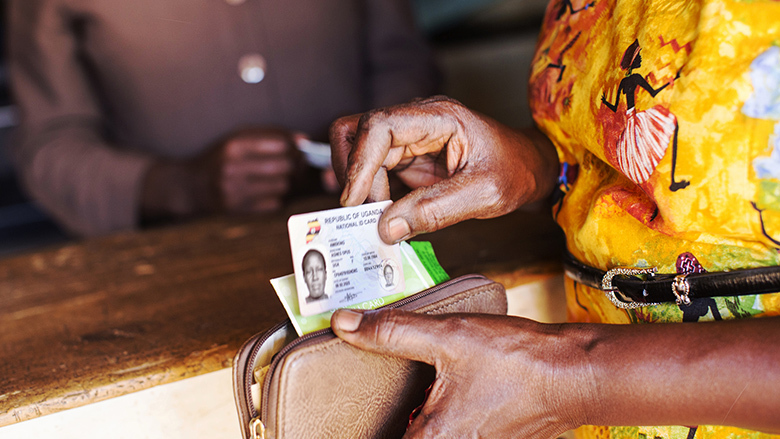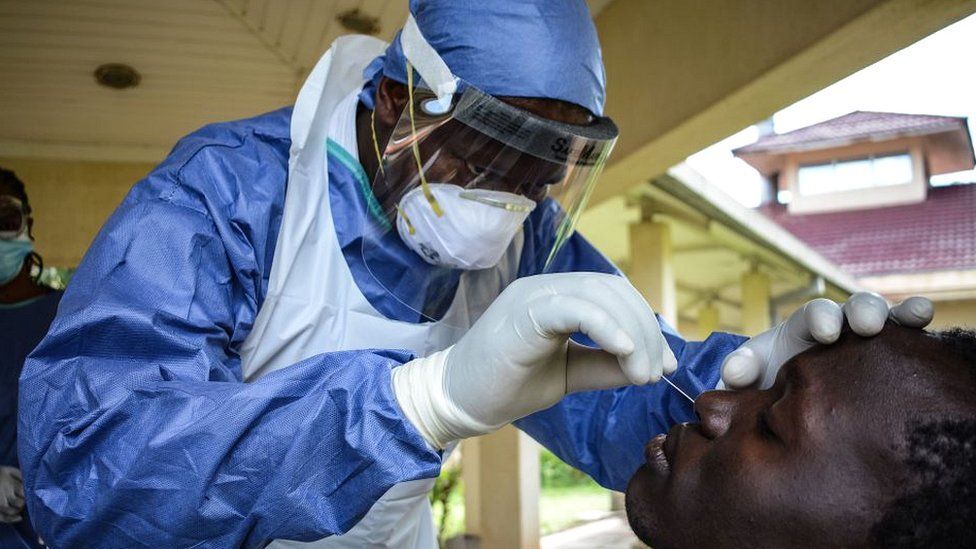Identity Review | Global Tech Think Tank
Keep up with the digital identity landscape.
The COVID-19 pandemic has changed the trajectory of daily life for people worldwide in just the span of a year—but did you know that the pandemic has disproportionately impacted women? On one hand, women have been more prone to unemployment and economic pandemic effects due to economic gender disparities, according to a report by McKinsey & Co. Perhaps more starkly, though, is the fact that women have less access to health care services than men do, especially in countries in the Middle East, Asia and Africa.
Earlier this month, global trade and technology data company Kountable and digital identity solutions provider ProofMarket announced a partnership to deliver COVID-19 tests to women in East Africa. The companies are using technology that creates a digital health identification with information over which women have ownership, and they have plans to expand the program to the Middle East and further throughout Africa.
“Even in ordinary times, women have problems accessing medical care due to living in rural areas or living in places where there is no clinic in their community and there’s no transportation,” said Suad Abu-Dayyeh, an Amman-based Middle East/North Africa consultant for Equality Now. “In general, with this pandemic, women have harder access to medical care or even getting the vaccine [because] they are second-class citizens when it comes to getting anything.”
As a company specializing in global trade, data and leveraging SMEs to power local supply chains, Kountable has been focused on providing rapid development tests since 2015. By improving and, in many cases, running the global supply chain in Kenya and Tanzania to combat diseases like HIV and malaria, Kountable has garnered the experience and the technology to provide COVID-19 tests as well.
While working toward its goal of providing COVID-19 tests to women in Africa and the Middle East, the company decided to partner with ProofMarket, a digital identity and digital trust technology provider specializing in public health and safety, in order to simultaneously provide a digital ID as well.
“The reason we are focusing on women is that identity in a formal sense is often a major impediment to them plugging in to the formal sector,” said Chris Hale, CEO of Kountable. “That formal sector could be around health care specifically and owning their own health care records; it could be around finance and access to finances and financial inclusion; or it could be around insurance and care for their families.”
In fact, women in Africa and the Middle East are much more likely to lack a digital ID, only being provided with non-updatable, physical ID cards. In very rural areas and villages, women may lack any form of ID whatsoever, according to Abu-Dayyeh.

Women in Africa disproportionately lack forms of ID, both digital and analog. Source: WorldBank
On the other hand, in countries like the United States, a person’s ID may comprise of various forms of ID from various sectors—one’s social security number, credit score, driver’s license number—which can be combined to form a digital persona that can be consumed by third parties.
This infrastructure has been particularly useful in delivering identity on global scale, proving to be a necessity to partake in the international health arena as global supply chains become more interconnected. This is because organizations that fund health projects want evidence that their money is being used on scientifically sound treatments.
“The global health sector is wanting to prove patient outcomes… This is a byproduct of all of the protocols related to COVID-19 but it’s been a desire of the health sector for a long time,” said Hale, noting that a lack of this identity makes it difficult for medical professionals to ensure follow-up care is received. This is relevant to COVID-19 as both the Moderna and Pfizer vaccines require two properly timed doses for maximum efficacy.
Keeping these circumstances in mind, ProofMarket and Kountable developed a blockchain-powered way to deliver digital IDs while distributing rapid COVID-19 tests that are uniquely numbered to enable the digital delivery and matching of results.

Kountable and ProofMarket aim to deliver both rapid COVID-19 tests along with forms of digital ID. Source: Getty Images
The digital ID form uses a decentralized identifier (DID), which consists of both a public and private key, to identify a person. The private key must be confirmed in order to share personal information, which, in the context of this initiative, means that women will be given access and ownership of their own health data in a way that isn’t even available in the United States today.
“With the decentralized identity, the information is only under control of the person, so it gives them a way to develop a digital reputation over time or a record of healthcare over time that enables care to be provided or health history to be recorded and kept and then shared as needed, online and digital,” said Tony Rose, founder and CEO of ProofMarket.
The digital ID works both with and without internet access in a manner that allows the individual to have complete authority over his or her health information. And while this identity created can be done with the help of local authorities, such assistance is not obligatory.
Eventually, Kountable aims to serve at least one billion women worldwide, providing digital ID to give ownership over one’s own health data.
ABOUT THE WRITER
Serena He is a Tech Innovation Fellow from the University of Southern California who is interested in AI and the intersection of design and technology. She enjoys covering news across the digital identity and tech space.
Contact Serena He at serena@identityreview.com.
Do you have information to share with Identity Review? Email us at press@identityreview.com.